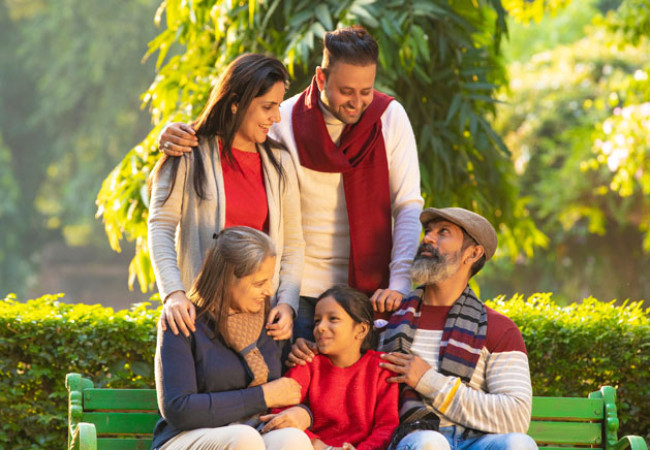
Canada's immigration system plays a crucial role in reuniting families as immigrants start a new life in the nation. Family sponsorships are the second-largest category of new permanent residents in Canada, after economic immigration. Contact us to know if your family member is eligible to enter Canada.
If you are at least eighteen years old and have a certain relative who needs to travel to Canada, you can sponsor their entry. This applies to Canadian citizens, persons registered in Canada as an Indian under the Canadian Indian Act, or permanent residents of Canada. Depending on the program you are applying under, there may be additional eligibility conditions as well.
You can apply for a spousal sponsorship to sponsor your spouse, common-law partner, or conjugal partner. To qualify, the person you want to sponsor must be legally married to you or have lived with you for at least 12 months in a marriage-like relationship. As the sponsor, you are required to provide financial support for three years, neither having filed for bankruptcy nor receiving social assistance other than for disability, and meet certain financial criteria.
Inland spousal sponsorship and outland spousal sponsorship are two different types of spousal sponsorship. In outland spousal sponsorship, the Canadian sponsor resides in Canada, while the sponsored spouse typically lives overseas. If the sponsored person has a valid passport or a valid Canadian visa, they are free to enter and exit Canada. The Canadian sponsor though must stay in Canada during the entire application process. The visa office that processes this type of application will be inside the sponsored spouse's home country or where they have been living for at least a year.
For inland spousal sponsorship, both spouses must reside in the country during the entire length of the application process. However, foreign spouses with temporary resident status can apply for an Open Work Permit (OWP) while their sponsorship application is processed, to help avoid financial strain. The foreign spouse must already have temporary resident status in Canada as a worker, student, or visitor.
If you want to sponsor your child or other dependents, you can apply for a dependent child sponsorship. To qualify, the sponsor must be in Canada, at least eighteen years old, and willing to provide for the dependent for ten years or until the child turns twenty-five years old. The child must be unmarried, under 22, or have been dependent before turning 22. It is best to apply before the child turns 22. To apply for permanent residence for your dependent child, you must submit a sponsorship application to Immigration, Refugees and Citizenship Canada (IRCC). Once authorized, you can apply for permanent residence for your dependent child.
Citizens and permanent residents of Canada have access to the Super Visa program for parents and grandparents of Canadian citizens or permanent residents. This allows multiple entries without visa renewal for up to five years at a time and is valid for up to 10 years, offering a quicker and more flexible family visitation path than the PGP. The Super Visa grants sponsored individuals a guest visa that permits extended stays in Canada but does not provide a path to permanent residence.
In addition to what was mentioned, there are exceptional cases in which a Canadian citizen or permanent resident can sponsor their siblings, nephews, nieces, or grandchildren. It is permissible to sponsor an orphaned sibling, sister, nephew, niece, or grandchild under 18 years old, with a biological or adopted relationship, and with no marriage or common-law union if both parents have passed away.
You cannot sponsor your sibling, sister, nephew, niece, or grandchild if either of their parents is alive, if the whereabouts of neither parent is known, if their parents have not abandoned them, or if one or both parents are alive and someone else is providing their care, or if one parent is imprisoned.
Canadian citizens and permanent residents can sponsor adopted or blood relatives under specific guidelines, but are not allowed to sponsor other surviving relatives, such as domestic companions, spouses, children, parents, grandparents, orphaned siblings, nieces or nephews, and grandchildren.
The sponsor can only have specific relatives. If the relative has a spouse, partner, or dependent children who want to go to Canada, they must be included in the sponsorship application as per the Indian Act.
Check if you qualify to migrate to Canada. Check out our Settlement Resources to learn how to find employment in Canada, making your initial days stress-free, etc.